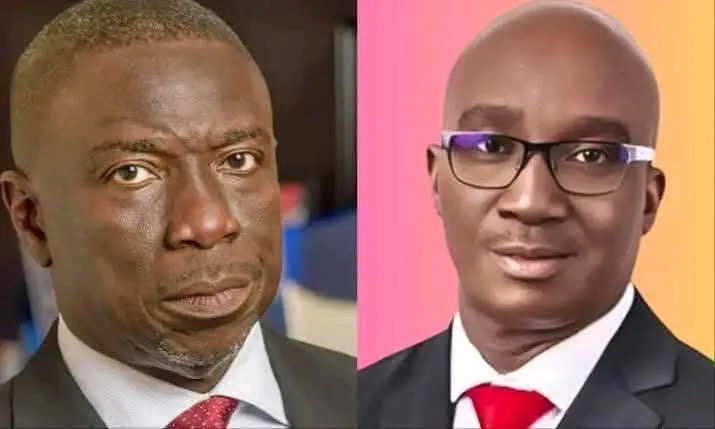The Edo State Governorship Election Petition Tribunal, sitting in Abuja, has upheld the election of Governor Monday Okpebholo of the All Progressives Congress (APC).
In a unanimous decision on Wednesday, the three-member panel ruled that there was no basis to nullify the results of the governorship election held on September 21, 2024.
Delivering the lead judgment, Chairman of the tribunal, Justice Wilfred Kpochi, dismissed the petition filed by the Peoples Democratic Party (PDP) and its candidate, Asuerinme Ighodalo, describing it as lacking merit.
The Independent National Electoral Commission (INEC) had declared Okpebholo the winner, with 291,667 votes, defeating his closest rival, Ighodalo, who secured 247,655 votes.
Dissatisfied with the results, the PDP and Ighodalo approached the tribunal, alleging that the election was not conducted in substantial compliance with the Electoral Act of 2022.
Their petition, marked EPT/ED/GOV/02/2024, argued that Okpebholo did not secure the highest number of lawful votes. They also contended that INEC failed to serialize and pre-record certain sensitive materials used in the election, facilitating alleged rigging in favor of the APC.
The petitioners specifically claimed that results were incorrectly computed in 765 polling units and presented 19 witnesses along with exhibits, including 153 Bimodal Voter Accreditation System (BVAS) machines used in 133 polling units. They alleged that results were manipulated at collation centers, leading to over-voting in Okpebholo’s favor.
However, in its judgment, the tribunal ruled that the petitioners failed to provide credible evidence to justify overturning the election outcome.
The panel emphasized that the burden of proof rested on the petitioners and noted that under the law, a petitioner must succeed based on the strength of their case rather than the weakness of the defense.
The tribunal struck out new facts introduced by the petitioners that were not included in their substantive case. However, it admitted as valid the documents they tendered in evidence.
The panel acknowledged that the petitioners detailed the wards and polling units where alleged infractions occurred but criticized them for merely submitting exhibits without properly demonstrating their relevance through competent witnesses.
The tribunal further pointed out that most witnesses presented by the petitioners provided hearsay evidence. It stressed that the failure to produce polling unit agents, presiding officers, or voters who participated in the election was detrimental to their case.
Also, it ruled that section 137 of the Electoral Act did not prevent the petitioners from presenting necessary and competent witnesses to support their claims.
On the issue of alleged irregularities, the tribunal rejected the argument that INEC failed to pre-record election materials as required by section 73(2) of the Electoral Act.
It also noted that none of the BVAS machines submitted as evidence were switched on to verify if the number of votes recorded in disputed polling units exceeded the total number of accredited voters.
“It is clear that items needed to prove over-voting are: Voters Register, BVAS machines, and Form EC8A,” the tribunal stated, adding that the petitioners only provided what they referred to as BVAS screenshots to support their claims.
The tribunal ultimately concluded that the petitioners failed to demonstrate that INEC did not substantially comply with the Electoral Act. Even if the votes they claimed were unlawfully credited to the APC were deducted, Governor Okpebholo would still emerge as the election’s winner.
Following the judgment, Ighodalo, through his legal team, vowed to appeal the decision at the Court of Appeal.

